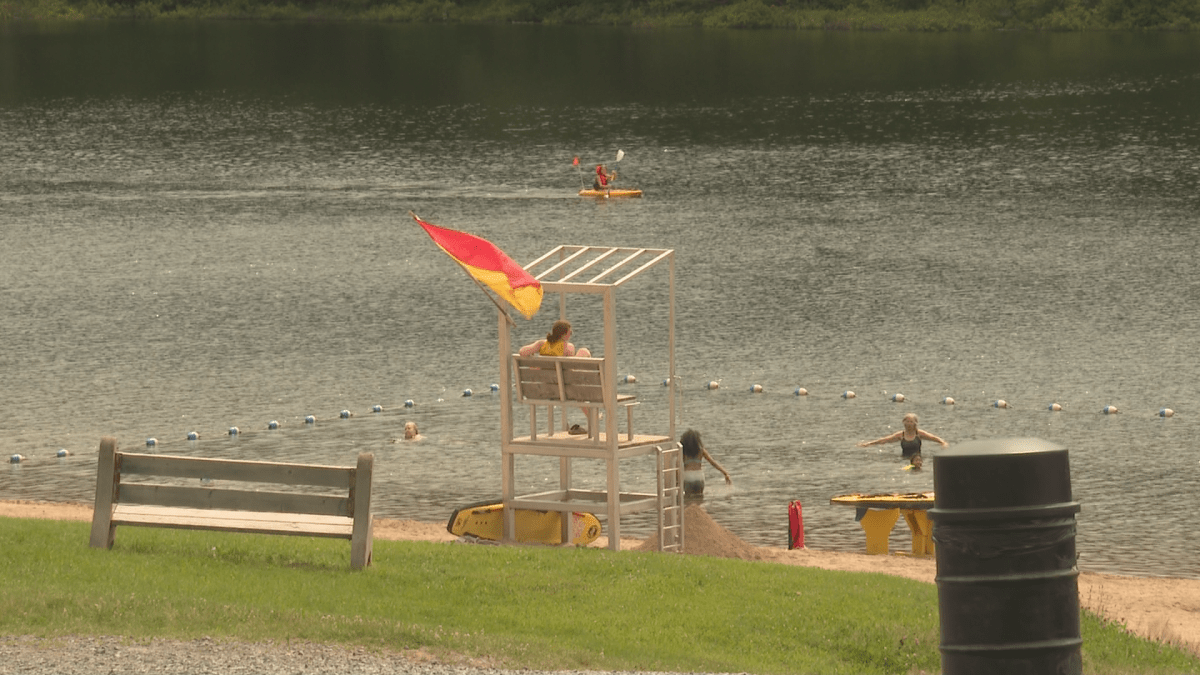There will be no lifeguards at the Mactaquac Beach this summer season.

For the first time in nearly three decades, beach-goers will be unsupervised, according to the Lifesaving Society in New Brunswick. It is an organization that tracks the registered lifeguards in New Brunswick and helps recruit people to take the training to become a lifeguard.
“Mactaquac was not being supervised this year, no lifeguards will be patrolling those beaches and from what we heard it’s just a staff shortages, they didn’t get enough applications to be able to fill all their applications,” said Grégoire Cormier with the Lifesaving Society.
He said it takes nearly 120 hours to train to be a lifeguard in a pool setting, and further training is needed for a waterfront setting. It is a physically demanding job that comes with a lot of responsibility.
The Department of Tourism, Heritage and Culture, which is responsible for Mactaquac’s beach, confirmed there would be no lifeguards this summer season.

Get weekly health news
“The decision for no lifeguard services at Mactaquac Provincial Park was based on a lack of qualified candidates,” the department said in an email statement. “The department worked with the Lifesaving Society to try to fill these lifeguard positions. Signage posted at the beach advises visitors that they swim at their own risk.”
Cormier said the reason for the lifeguard shortages is complex, including issues with proper compensation.
He said some other beaches are facing issues as well, but are deploying different strategies to ensure coverage – even if it is only for a certain number of days a week.
“There is multiple reasons that leads to this predicament,” he said in an interview on Monday. “I think one of them is the salaries. The salaries aren’t very competitive. Beaches are also located some distance from large centres where there are lifeguards in the community, so an example for Mactaquac, it’s a long drive.”
He also said many lifeguards are students and it can be challenging to fund the positions after students graduate or move on.
Statistics from the Lifesaving Society show the risk of drowning is less than one per cent when a lifeguard is present.
Between 2015 and 2019, data showed 30 per cent of drownings occurred in ponds and lakes. Another 23 per cent occurred in rivers – similar to the environment at Mactaquac Beach.
It showed that 50 per cent of drownings of middle-aged adults occurred when they were swimming alone. It jumped to 57 per cent for adults 65 years old or older.
The highest incidents of drowning happen when the individual is not wearing a life-jacket.
Cormier said drowning can occur in as little as 30 seconds, meaning awareness is key, and having a lifeguard is critical to that awareness.
He said children should never be left unattended by water, including at a pool at home, and people should wear their life-jackets and have a whistle to alert if something changes.
The City of Fredericton said it also faced challenges finding lifeguards for its aquatic facilities. It did a year-round recruitment campaign to be able to fill positions for the regular hours of operation.
It said there is a sufficient number of lifeguards for this season.










Comments
Want to discuss? Please read our Commenting Policy first.